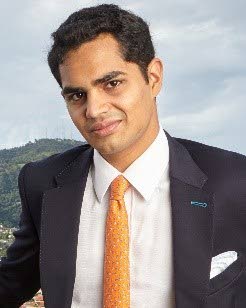Tapping emotions can make us productive powerhouses

KIRAN MATHUR MOHAMMED
kmmpub@gmail.com
How do we become more productive? This is an urgent question. The constant parade of neither good nor very bad statistics has made it clear: little but stagnation and decline await us, unless we heave ourselves out of the doldrums and into better productivity.
This starts with each individual. I myself constantly feel frustrated. How can I zero in on what is truly important? Why can’t I get things done faster? How can I stop myself drifting off into those little moments of listlessness that consume so much time?
Many of the usual solutions to these problems – be they better to-do lists or ways of structuring tasks – are often disappointing when put into practice.
So why don’t they work all that well? The reason, it seems, is that they are trying to tackle with logic what are in fact emotional problems.
When we go off the rails into idleness, it is usually because we are bored by a simple task or anxious about a difficult one. In other words, it is most often not because of what we are doing, but what we are feeling.
As Dr Travis Bradberry has written in his investigation of productivity, Emotional Intelligence 2.0, productivity is lost in fits and starts.
We procrastinate because we feel bored or anxious, then we feel guilty and force ourselves to work. But because we haven’t acknowledged or addressed the original emotions, we quickly fall back into bad habits.
The good news is that Dr Bradberry and others’ research has found that overcoming this can be more straightforward than we think.
We may not be able to control our feelings at work, but we can control our responses to those feelings.
The first step is acknowledgement. The second we perceive ourselves as being unproductive, we must identify and label our emotions as we experience them. Describing the emotion helps us to relax and start to understand why we feel that way.
Is it because we feel overwhelmed, and need more training for the task? Do we need support from someone else to complete the task? Have we fallen behind and hence we need do something uncomfortable to get back on track – like engaging a prospective client after an awkward length of time?
One we’ve taken this step we can move forward. That may mean finding help, delegating or changing the way we approach the task.
Looking at productivity as an emotional reaction instead of a mechanical one changes the whole perspective on how we work.
Take multi-tasking. We can now see for what it is: another productivity-drainer. Our brain doesn’t have the capacity to efficiently do more than one thing very well. Skipping from task to task loses a huge amount of energy, time and focus to that friction.
Now reality means we must sometimes slog through a task that we can’t ignore, delegate or seek support with. The magic number there is 20. Studies have shown that if we remove typical distractions like e-mails or social media for more than 20 minutes, we have a much higher chance of completing the task – no matter how boring.
You don’t even need to get much done during those 20 minutes. The crucial thing is just to focus the attention on the one task to get you over the hurdle.
The next thing is to acknowledge the natural need for breaks. The ideal is apparently 52 minutes of work followed by a 17-minute break. That is certainly unrealistic for most people, including me, but a few small structured breaks during the day are often achievable.
Most of us also don’t have the luxury of splitting our day into concerted time. Once the day begins, we are bombarded with messages, calls and emails, all demanding attention and energy. This is difficult to resist: our bodies crave the dopamine burst we get every time we receive a message notification.
But there is a lot of communication that doesn’t have to be dealt with immediately. Most emails and messages can be responded to on a schedule. We shouldn’t open a message unless we intend to delete, respond or delegate it.
Dr Bradberry puts it neatly: “Never touch things twice.” Don’t save anything for later. Act on it, delegate it or delete it. I’m nowhere near to achieving this, but the attempt alone has been life-changing so far.
We don’t need to throw our hands up in futility, or whip ourselves in a vain attempt to get things done. By acknowledging our emotions, we can redesign our lives and reclaim an innate sense of industry and fulfilment.
Kiran Mathur Mohammed is a social entrepreneur, economist and businessman. He is a former banker, and a graduate of the University of Edinburgh

Comments
"Tapping emotions can make us productive powerhouses"